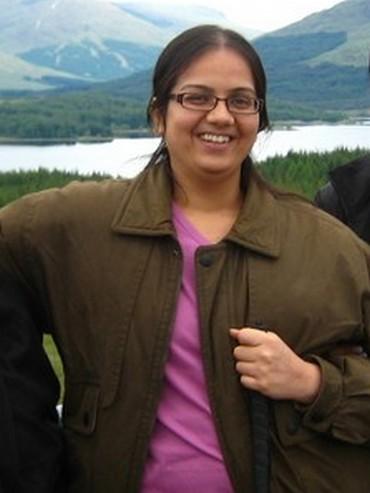 Meet Garima Goyal, who had to give up her dreams because of an irreversible and degenerating eye condition, went on to become one of India’s first visually challenged media graduates.
Meet Garima Goyal, who had to give up her dreams because of an irreversible and degenerating eye condition, went on to become one of India’s first visually challenged media graduates.
The day before her first history test in the tenth grade, Garima Goyal‘s mother walked into her room and said: “You have the same problem as bhaiyya.”
For a regular 15-year-old, this might have sounded like bickering about the mess in the room, her grades or some such mundane problem.
Garima’s brother, Ashish, however was no regular teenager. After that morning, she wouldn’t remain one either.
It had been a few years since her brother was diagnosed with Retinitis Pigmentosa, an irreversible and degenerating eye condition.
Ashish Goyal was going blind. And now, so was Garima.
Meet Ashish Goyal, world’s first blind trader
A little over 10 years since the day, the two siblings have lost most of their vision.
Ashish has gone on to become the first blind person to graduate from Wharton and is the first blind trader at J P Morgan’s London operations.
Garima is one of the first visually challenged media graduates from the Maharashtra State Board of Technical Education. She’s completed her course in social communications media from Sophia College — a major portion of this course involves a strong visual element.
She has around 20 per cent of her sight remaining. This means even when I am sitting at arm’s length and waving my hands at her, she doesn’t know a thing. All she can see is a vague outline of my head and senses some movement of people behind me.
Garima doesn’t wear dark glasses. Instead, she sports a pair of spectacles with a very thick lens that helps with whatever little is left of her vision.
Most of what Garima can see is largely dependent on lighting. Mostly though, the 25-year-old has to make do with a cane.
It isn’t a regular red-and-white cane — it’s black and metallic, stylish, with a wheel at the bottom and much longer than the regular walking sticks most of us are used to seeing.
She uses the wheel to draw semi-circles as she walks to gauge the ground ahead.
Often, the stick itself has raised curiosity amongst strangers around her. They want to know what it is and when she tells them, they want to know if she is blind.
“You don’t look blind,” is something Garima hears very often.
To be honest, at first, she didn’t seem like a visually challenged person to me either. Part of it, perhaps, has to do with the fact that Garima is so comfortable with her impediment, she’s learnt to overcome it superbly.
A larger part, I suspect, has to do with a different kind of blindness — ours. We’re simply conditioned to believe that all blind people must carry a red-and-white cane and wear a pair of thick, ugly dark glasses.
Garima, though doesn’t care or at least won’t give the impression she does.
Image: Garima Goyal
Ref: http://www.rediff.com/getahead